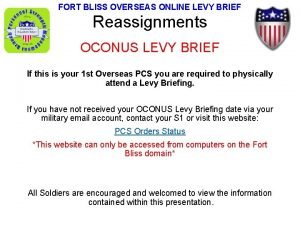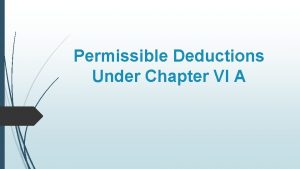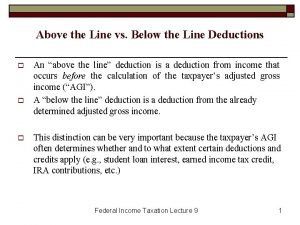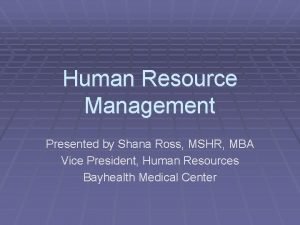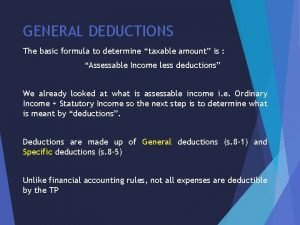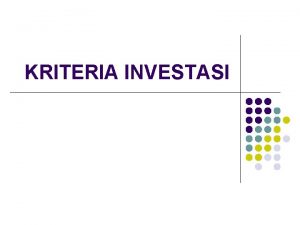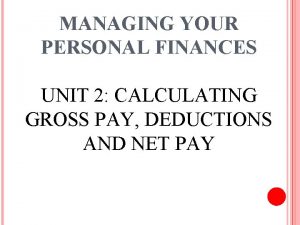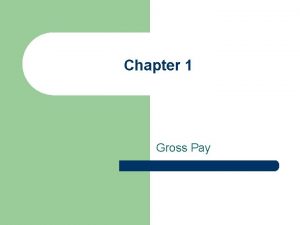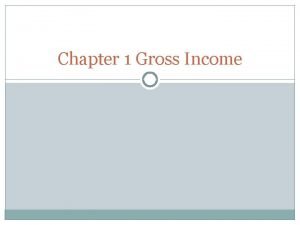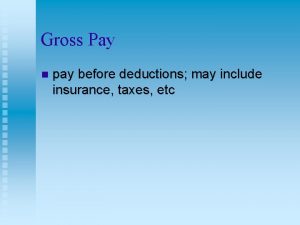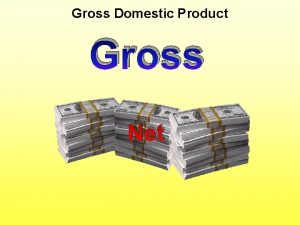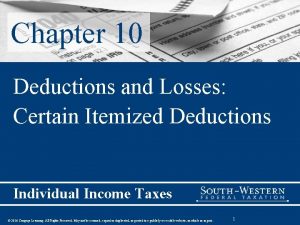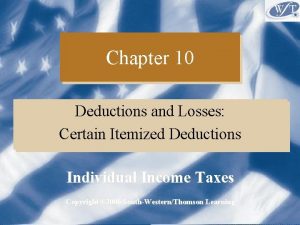Gross Pay Deductions and Net Pay Definitions Gross










- Slides: 10

Gross Pay, Deductions and Net Pay

Definitions Gross pay is total pay before deductions. Net pay is money earned after deductions. Net pay is also called take home pay.

Deductions The primary deductions from an employee’s income are contributions to Canada Pension Plan (CPP), which provides income for retired workers. Employment Insurance (EI) , which provide income for unemployed workers while they look for new jobs. Income tax, which are taxes on income that pay for federal and provincial service such as health care, education, and national defense

CPP – Canada Pension Plan Who pays into the Canada Pension Plan? Any worker 18 -70 years of age What percent of an employee’s gross income is the CPP contribution? 4. 95% What is the maximum amount that an employee is required to contribute to the Canada Pension Plan in one year? $2, 544. 30 Who is eligible to collect from the Canada Pension Plan? 65 years of age and older

EI – Employment Insurance What is the EI plan? Employment Insurance- to help those who lost work to no fault of their own What percent of an employee’s gross income is the EI contribution? 1. 69% What is the maximum amount that an employee may be required to contribute to Employment Insurance in one year? $836. 19

EI – Employment Insurance Who is eligible to collect EI? Anyone laid off without pay for 7 consecutive days. Who has worked a certain number of insurable hours (420 to 700). What is the maximum length of time that someone can collect Employment Insurance? 14 -45 weeks

Income Tax What is income tax and what does it pay for? Income tax is a tax levied by a government directly on income. It pays for healthcare, education, social services, national defence, etc. Who pays income tax? Anyone working.

Income Tax Is there a maximum amount that an employee might be required to pay in income tax in one year? No An limit and it depends on the amount a person make in a year. employee earning under $10, 400 per year is not required to pay income tax.

Federal Income Tax Range of Annual Gross Income Percent of Taxable Income Going to Federal Income Tax From $1 to $ $46 605 15% From $46 605 to $ 93 208 20. 5% From $93 208 to $144 489 26% From $144 489 to $205 842 29% Income over $205 842 30%

Provincial Income Tax Range of Annual Gross Income Percent of Taxable Income Going to Federal Income Tax From $1 to $42 960 5. 05% From $42 960 to $80 923 9. 15% From $80 923 to $150 000 11. 16% From $150 000 to $220 000 12. 16% Income over $220 000 13. 16%

